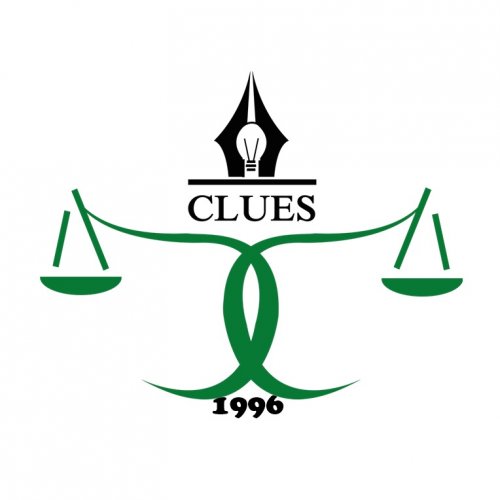Best Art & Cultural Property Law Lawyers in Thimphu
Share your needs with us, get contacted by law firms.
Free. Takes 2 min.
List of the best lawyers in Thimphu, Bhutan

Basnet Attorneys and Law - A Premier law Firm in Bhutan
15 minutes Free ConsultationAbout Art & Cultural Property Law in Thimphu, Bhutan
Art & Cultural Property Law in Thimphu, Bhutan, is focused on the protection and preservation of the nation's rich cultural heritage. This includes traditional artifacts, religious relics, artworks, and other culturally significant items. The government of Bhutan, through various legislations and policies, safeguards these items to maintain the country’s cultural identity and heritage. The legal framework surrounding art and cultural property is designed to prevent illegal trade, theft, and export of cultural objects, ensuring that Bhutanese culture is preserved for future generations.
Why You May Need a Lawyer
There are numerous situations where individuals or organizations may require legal assistance in the field of Art & Cultural Property Law, such as:
- Disputes over ownership or provenance of cultural artifacts.
- Involvement in the purchase, sale, or donation of artwork or cultural property.
- Organizing exhibitions or loans of cultural objects, especially cross-border.
- Legal issues related to art theft or the recovery of stolen artifacts.
- Ensuring compliance with local and international laws regarding the trade of cultural property.
- Handling estate issues where art or cultural items are involved.
Local Laws Overview
In Thimphu, Bhutan, several laws are particularly relevant to Art & Cultural Property Law. These include:
- The National Heritage Act: This act provides guidelines on the protection of Bhutan’s heritage sites and cultural artifacts.
- The Cultural Properties Act: This legislation sets the legal standards for the ownership, protection, and transfer of cultural properties.
- International conventions: Bhutan is a signatory to several international agreements such as UNESCO conventions safeguarding intangible cultural heritage and against the illicit trafficking of cultural property, influencing local laws and practices.
Frequently Asked Questions
What is considered cultural property under Bhutanese law?
Cultural property generally includes artifacts, artworks, religious objects, manuscripts, and monuments that are of significance to Bhutanese culture and history.
Do I need permission to export cultural artifacts from Bhutan?
Yes, exporting cultural artifacts usually requires authorization from the relevant government authority, as unauthorized export is prohibited.
What legal actions can I take if I find a cultural artifact on my property?
If you discover a cultural artifact, you should report it to the National Commission for Cultural Affairs. The ownership is typically vested in the state.
How can I verify the authenticity of a cultural artifact?
Consult with the Department of Culture or a certified cultural expert to verify the authenticity of cultural artifacts.
Who oversees the protection of cultural property in Bhutan?
The Ministry of Home and Cultural Affairs, particularly the Department of Culture, is responsible for overseeing cultural property protection.
Is there a market for traditional Bhutanese art internationally?
Yes, there is interest in Bhutanese art, but trade must comply with both local and international laws to ensure it is legal and ethical.
Can foreign entities own Bhutanese cultural property?
Ownership is generally restricted, and foreign entities may face limitations. They must adhere to specific legal requirements and seek appropriate permissions.
What should I do if I suspect an artifact is stolen?
You should report it to local law enforcement and the National Commission for Cultural Affairs immediately.
Can cultural properties be used as collateral for loans?
In general, cultural properties may face restrictions as collateral due to their national significance and legal protection.
What are the penalties for the illegal trade of cultural artifacts?
Penalties can include fines, confiscation of artifacts, and imprisonment, depending on the severity of the offence.
Additional Resources
For those seeking more information or assistance, the following resources may be useful:
- Ministry of Home and Cultural Affairs: Overseeing body for cultural heritage protection.
- The National Library & Archives: Offers information on cultural heritage and documentation.
- Royal Bhutan Police: For reporting theft or loss of cultural property.
- UNESCO Bhutan Office: Can provide guidance on international conventions and cultural heritage protection.
Next Steps
If you need legal assistance in Art & Cultural Property Law in Thimphu, Bhutan, consider the following steps:
- Research and contact legal professionals specializing in cultural property law.
- Consult with local government bodies for specific guidelines and legal requirements.
- Engage with national and international experts for comprehensive legal advice and representation.
- Ensure all documentation related to your case is well-prepared and accessible for your legal consultant.
Lawzana helps you find the best lawyers and law firms in Thimphu through a curated and pre-screened list of qualified legal professionals. Our platform offers rankings and detailed profiles of attorneys and law firms, allowing you to compare based on practice areas, including Art & Cultural Property Law, experience, and client feedback.
Each profile includes a description of the firm's areas of practice, client reviews, team members and partners, year of establishment, spoken languages, office locations, contact information, social media presence, and any published articles or resources. Most firms on our platform speak English and are experienced in both local and international legal matters.
Get a quote from top-rated law firms in Thimphu, Bhutan — quickly, securely, and without unnecessary hassle.
Disclaimer:
The information provided on this page is for general informational purposes only and does not constitute legal advice. While we strive to ensure the accuracy and relevance of the content, legal information may change over time, and interpretations of the law can vary. You should always consult with a qualified legal professional for advice specific to your situation.
We disclaim all liability for actions taken or not taken based on the content of this page. If you believe any information is incorrect or outdated, please contact us, and we will review and update it where appropriate.








